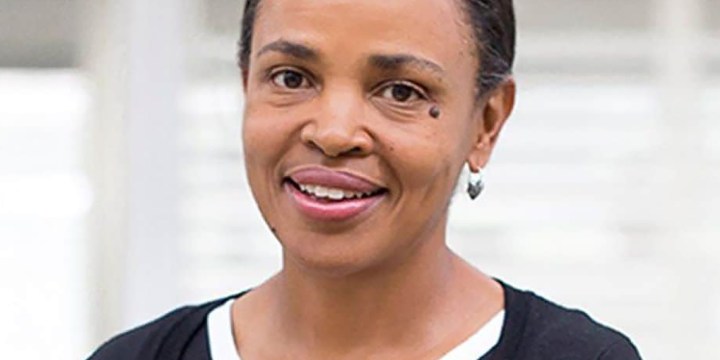LOGISTICS
Transnet in desperate need of partnerships to get flailing parastatal back on track

State-owned logistics operator Transnet has always been a lumbering and bureaucratic monopoly. If recent results say anything, it is that CEO Portia Derby is doing her utmost to turn this behemoth around. It’s a mammoth job and Covid has set the project back. It may be too early to tell whether the ship is turning or not.
State-owned logistics operator Transnet declared an R8.8-billion loss for the year to March 2021 for the first time in decades, down from a R2.3-billion profit the year before.
Management puts the blame squarely on lower volumes and revenues related to the Covid-19 pandemic and ensuing lockdowns. However, escalating theft from its multi-product fuel pipeline and rail system also weighed heavily on its results, with third-party claims and environmental provisions relating to pipeline spills amounting to R5-billion.
The results, which were audited by the Auditor-General rather than a private sector firm, were released with a qualified opinion and reflected irregular expenditure of R104-billion, down from the R131-billion recorded for the previous year.
“We did not enter the 2020 year in a strong financial position, and faced a tough year as a result of the pandemic and the economic slowdown that resulted,” said CEO Portia Derby on Friday at the presentation of the company’s results.
The focus in the year has been on resolving irregular expenditure, strengthening governance systems, improving and simplifying procurement policies and maintenance, she said.
Revenue fell 10.5% — from R75.1-billion to R67.2-billion — due to lower volumes across the four biggest business units: Pipelines, Freight Rail, Engineering and Port Terminals. Rail moved 13.7% lower than budgeted rail tonnages, the ports handled 11.5% lower than budgeted port container volumes and the pipeline transported 26.4% lower than budgeted pipeline volumes.
Operating expenses rose 16% to R47.8-billion, which limited any wiggle-room management may have had.
Management impaired financial assets to the tune of R987-million, and non-financial assets (notably trains) by R3.3-billion. After finance costs and other costs and adjustments, the company found itself in a loss-making position.
Nonkululeko Dlamini, Transnet CFO since July 2020, notes that gearing, at R129-billion, remains within Group covenants. However, finance costs of R11.2-billion are becoming a noose around the proverbial albatross’s neck.
The downgrade of South Africa’s credit rating to sub-investment grade is also of concern, as it raises the cost of capital going forward.
The new management team, led by Derby, who joined earlier in 2020, has worked hard to set the giant organisation on a sustainable trajectory. A new strategy, the Growth and Renewal Strategy, aims to reposition Transnet for growth with partnerships and collaborations at its core.
But within the business units, there are significant operational and financial problems that need to be resolved.
Transnet’s pipeline business, which transports 70% of the refined fuel, crude oil, gas and jet fuel used in inland areas, saw revenue fall by 14.6% to R4.8-billion, as demand for fuel — in particular aviation fuel — plummeted during the lockdowns of the preceding year.
While volumes may rebound, rocketing fuel theft from the pipeline, which in some places is less than a metre underground, is becoming a liability. This forced Transnet to make an almost R1-billion provision for environmental remediation and rehabilitation, and a R4-billion provision for possible claims against the company.
As a result, Pipelines reported a R2-billion loss before interest, tax and other accounting treatments. It reported a R3.8-billion profit in the previous year.
Transnet Freight Rail (TFR), the biggest of the operating units, saw revenue fall by 11.6% to R39.4-billion as freight volumes fell during the pandemic. However, while iron ore and coal are expected to recover, general freight, which fell by 21%, may not recover.
Derby notes that derailment incidents, increased theft and vandalism across all corridors, persistent locomotive failures and reliability issues, network speed restrictions and tippler and offloading challenges at various ports contributed to the poor performance and cost the company customers.
The division reported earnings before accounting treatments of R14.3-billion, a 24% decline on the previous year. Debt stands at R75.5-billion and the net debt-to-Ebitda ratio is 5.3. Generally a ratio of less than three is acceptable — the lower the ratio, the better the chance the debt will stabilise.
Anything above four is a red flag. Transnet’s Port Terminals division, once the cash cow of the organisation, saw revenue fall by 5.2% to R13.1-billion as a result of Covid, adverse weather conditions, unfavourable market conditions, poor rail supply, poor maintenance and equipment challenges.
Recent fires in Richards Bay, for instance, caused R1-billion worth of damage to container belts and related infrastructure. While operating costs were well maintained, earnings fell by 24.% to R3.6-billion and profit before tax by 65% to R1.3-billion.
Transnet Engineering (TE), which reported a R1.5-billion loss, is in deep trouble. The advanced manufacturing unit, which once planned to build 70% of the infamous and now aborted locomotive project, is in the throes of a business reorganisation to ensure it is sustainable and less dependent on TFR for income. Derby noted that TE could in future provide its engineering capabilities to the port operations.
Derby acknowledges that, across the board, Transnet’s operational performance has been declining in recent years, resulting in a financial position that is “marginally constrained”.
“This means we cannot make the required infrastructure investments to grow the freight system for the benefit of the economy from the strength of our own balance sheet alone.”
Partnerships — not privatisation, she stresses — are the way forward. BM/DM
[hearken id=”daily-maverick/8816″]


















 Become an Insider
Become an Insider
Comments - Please login in order to comment.